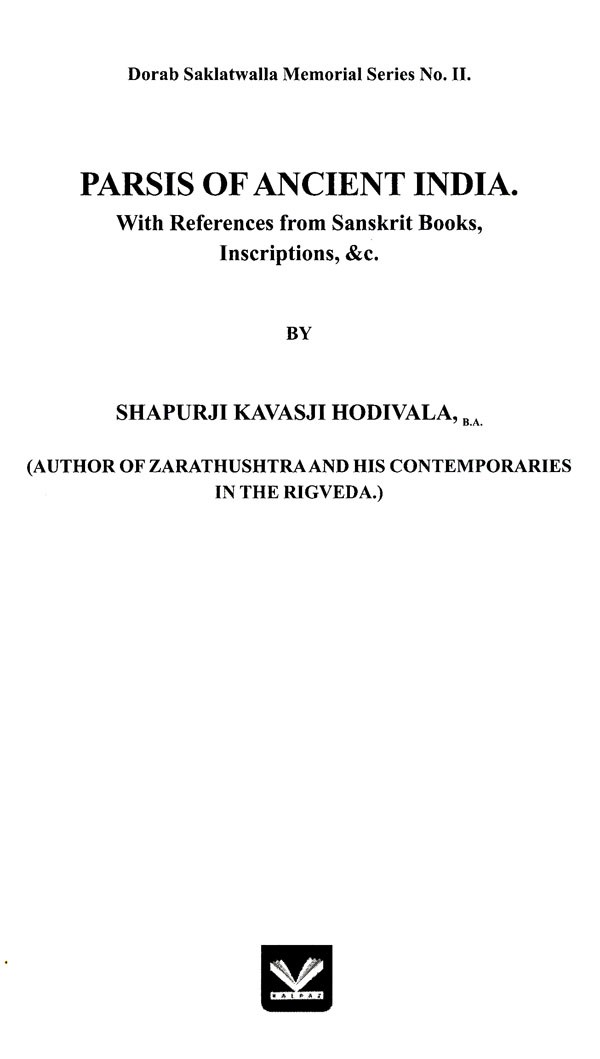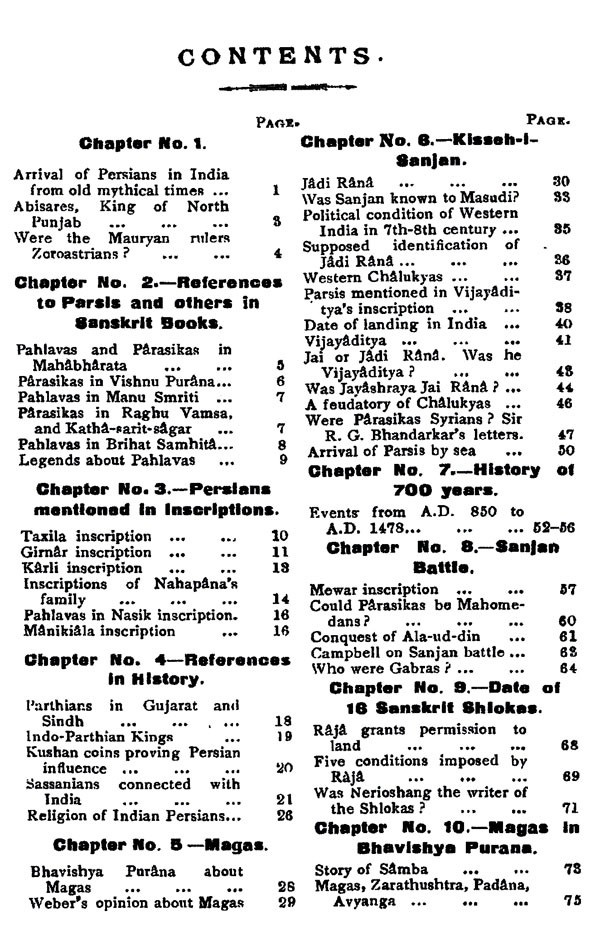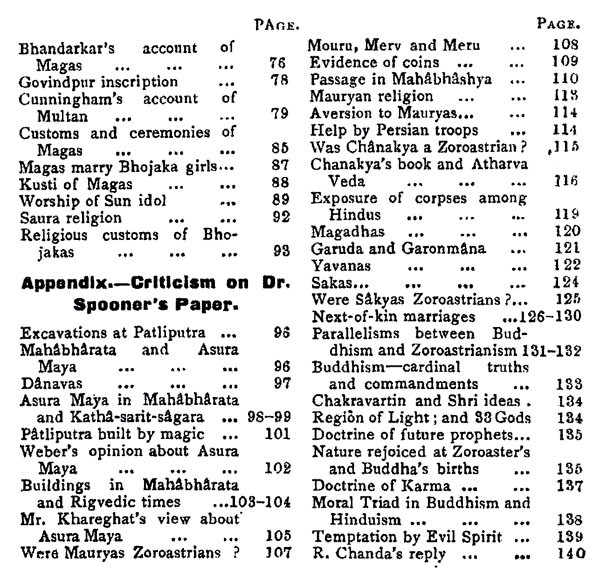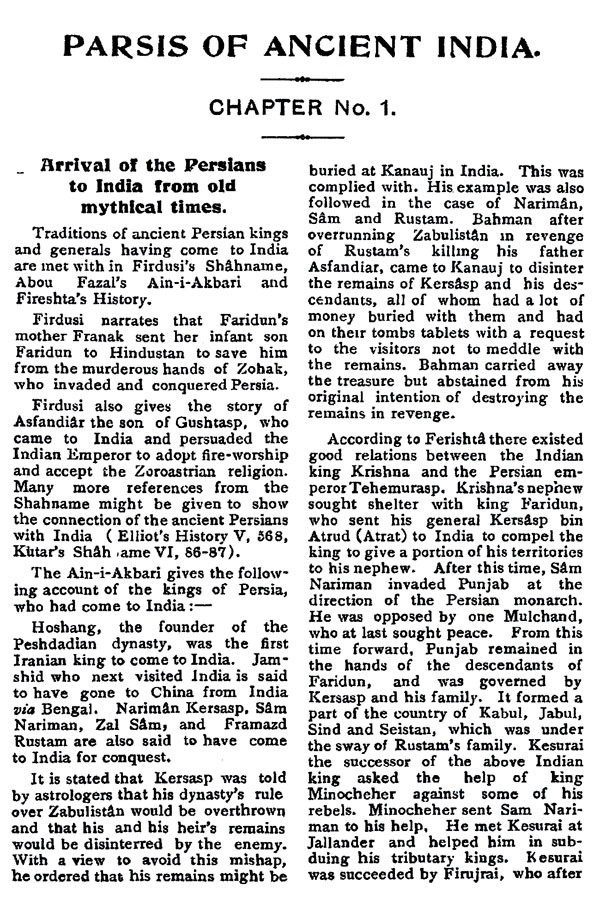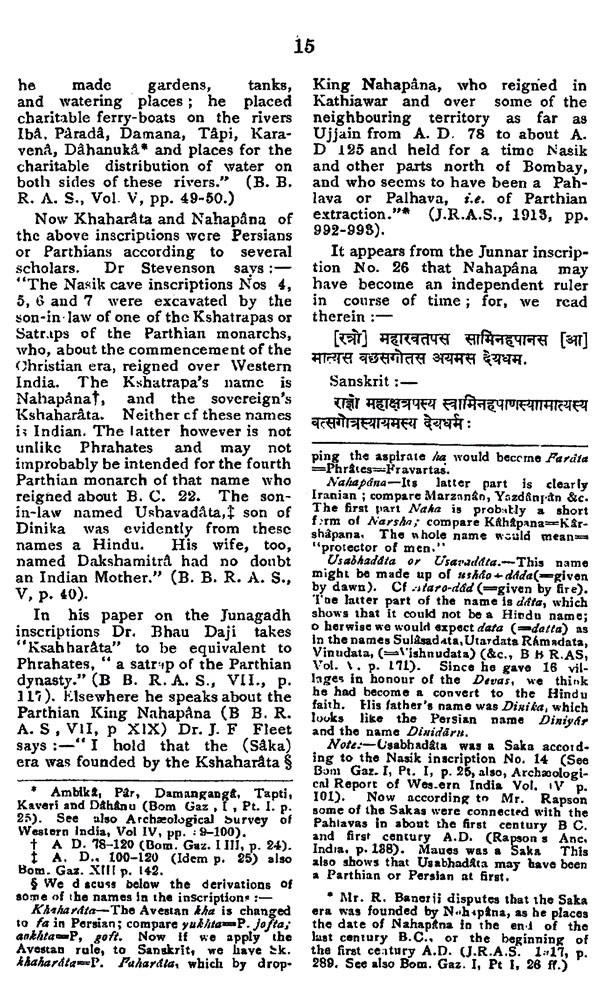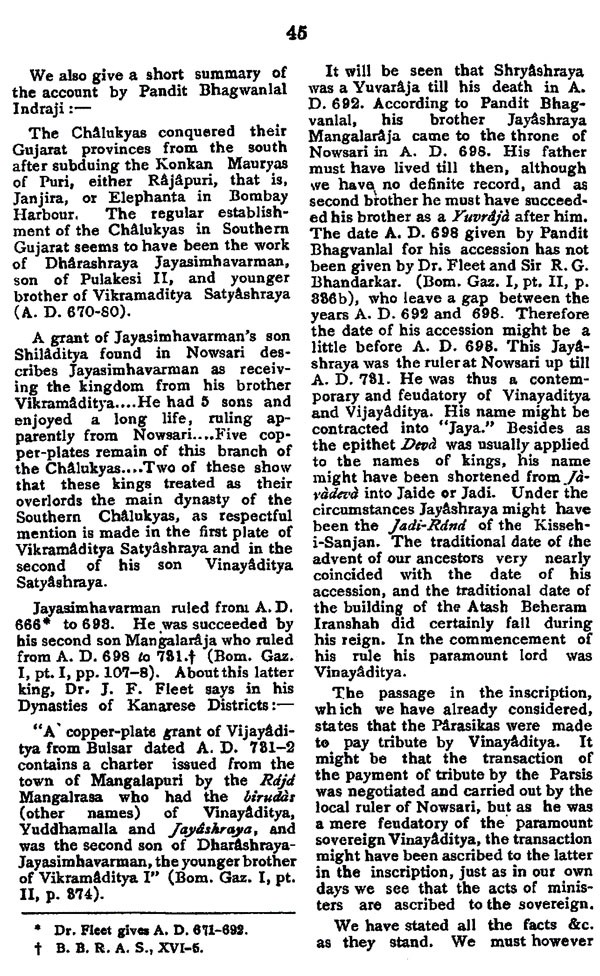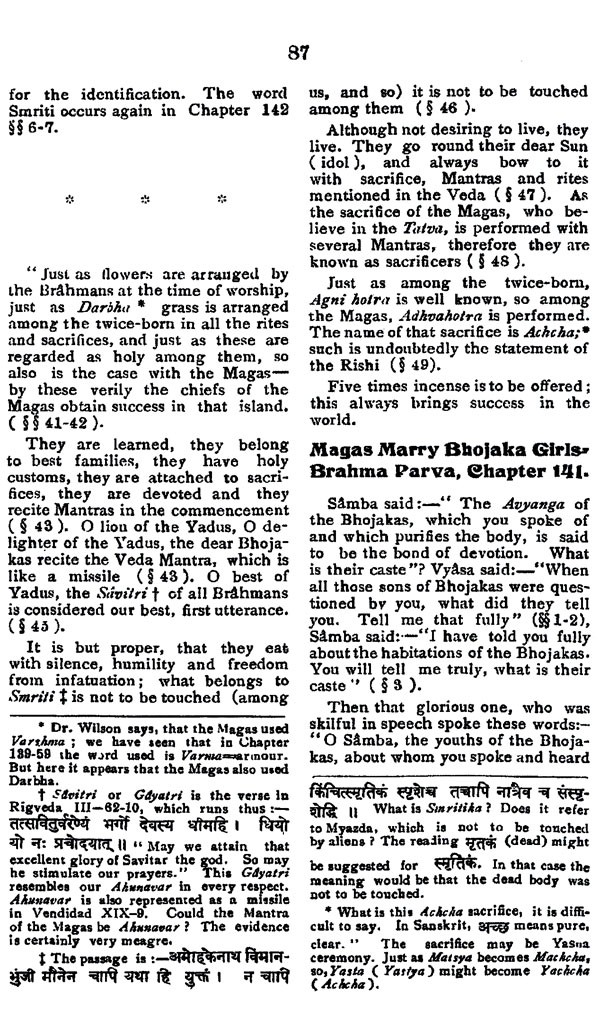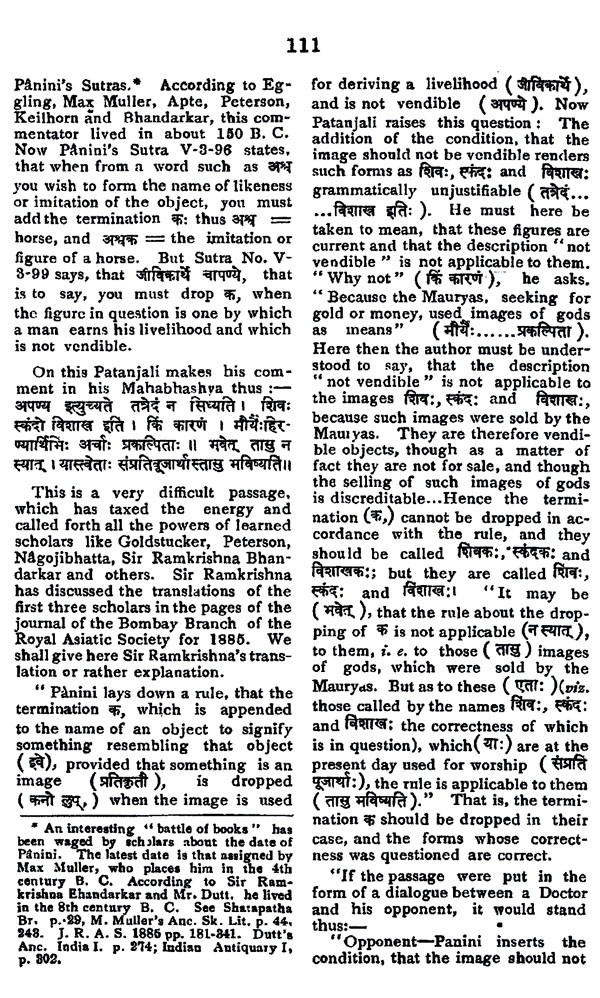
Parsis of Ancient India: With References from Sanskrit Books, Inscriptions, & c
Book Specification
| Item Code: | UBC732 |
| Author: | Shapurji Kauasji Hodivala |
| Publisher: | Kalpaz Publications |
| Language: | English |
| Edition: | 2017 |
| ISBN: | 9789351284727 |
| Pages: | 152 |
| Cover: | PAPERBACK |
| Other Details | 8.50 X 5.50 inch |
| Weight | 220 gm |
Book Description
The Aryans.
From the very great similarity in the ancient languages, thoughts, traditions, rituals, and ways of life of the Iranians and Aryan Indians it has been inferred that their ancestors must have formed a common nation at one time, and there is such a mass of evidence to support this inference, that it is commonly accepted by scholars. On the hand, the theory that the Zoroastri- ADS were a colony from northern India, that a schism took place there, and the Zoroastrians migrated westwards is one not commonly accepted. The belief commonly accepted and based on a large amount of evidence is that after the ancestors of the Indians came to India, the Iranian and Indian branches, although in some contact, developed independently, that the separation took place long before the time of Zoroaster, that Zoroaster was an Iranian and did all his work on Iranian soul among Iranian peoples.
Paru and Prithu.
That the Persians or Parthians are mentioned by name in the Rigveda is extremely doubtful. Both tradition and modern scholarship are opposed to this view. In Rv. 1- 108-8 q: very probably means "ribs," and in Rv. VII-83-1 347 with broad sickles." In Rv. VIII- 6-46 is a proper noun, but that it means. Persian "there is nothing to show.
In this connection it must be remembered that the appellation "Persian" came to be applied to the whole Iranian nation only after the rise of the Persian Achemenians, long after the period of the Rigveda. Before then, it was con- fined to the people of Paris, the modern Fam, a region in the south- west of Iran, very far from India, and the Iranians called themselves by the name Airya, corresponding to the Indian and Arya. The name of Persia does not occur even in the Avesta: much less is it likely to occur in the Vedas.
**Contents and Sample Pages**
